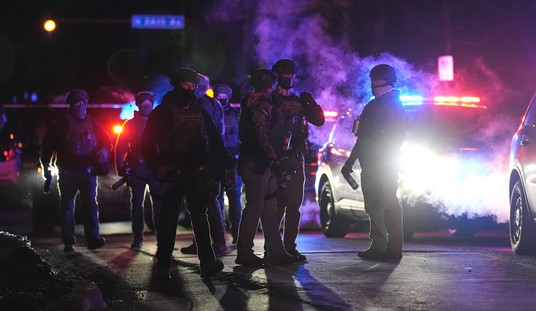How do they decide whether to pull the trigger or not?
Is it a matter of waiting to see whether Omicron begins outcompeting all other variants globally? If it does then one might reason that all future strains of the virus are likely to be descendants of Omicron, in which case updating the vaccine makes sense.
But what happens if Delta hangs around, comprising one percent of all cases while Omicron is responsible for the other 99 percent, say, and then there’s a freaky mutation of Delta somewhere that suddenly begins outcompeting Omicron? Wouldn’t pharmaceutical companies need to switch gears again and build another vaccine for that strain?
Is there enough manufacturing capacity to produce parallel vaccines, one for the original SARS-CoV-2 and one for Omicron?
It’s not clear from Gottlieb’s answer here how Pfizer and Moderna will go about making this decision. But I think I understand his argument for wanting to stick with vaccines targeting the ancestral strain for as long as possible.
With @potus pushing for no more lockdowns, does the administration need to look at getting vaccine manufactures to chase COVID mutations?@ScottGottliebMD says companies like Pfizer are already doing that but recommends sticking with the "ancestral strain" as long as possible. pic.twitter.com/yYqH8crRIw
— Face The Nation (@FaceTheNation) December 5, 2021
Last week Trevor Bedford developed a “family tree” for the variants circulating. Omicron is the red cluster in the upper left:
You can see the striking accumulation of mutations in the S1 domain of the spike protein just by plotting S1 mutations against time and coloring by clade (https://t.co/OZC2Sgvb7v). Omicron viruses bear many more S1 mutations than previously circulating variants. 7/16 pic.twitter.com/HtcpG8dlXu
— Trevor Bedford (@trvrb) November 26, 2021
Gottlieb’s point is that the more specific a vaccine is to one branch of SARS-CoV-2’s family tree, the less protected the public will be from mutations that might arise on some other branch. The prudent thing to do, then, is to aim the vaccine at the tree’s “trunk,” the genetic points of commonality among the variants from the ancestral Wuhan strain. Maybe Omicron is sufficiently different that it no longer has many points of commonality and sufficiently threatening that we need an aggressive pharmaceutical response to it. But again, how do Pfizer and Moderna make a judgment on that?
The biggest factor, I assume, will be how effective the current vaccines are against it. There’s a fascinating case out of Norway in which 120 employees at a company gathered at a restaurant in Oslo for a Christmas party. The rules required that all attendees be vaccinated and tested negative a day earlier. Result: 64 people — more than half — tested positive for COVID afterward, including at least 13 for Omicron. (Testing is ongoing but presumably all 64 cases will turn out to be that variant.) Having that many fully vaccinated people get infected in the same space suggests that the variant really is shockingly contagious. But not a single one of the 64 has needed hospital care for the illness. They’re all dealing with the standard complement of flu-ish symptoms without needing supplemental oxygen.
Maybe that’s because Omicron is inherently mild. Maybe it’s because attendees at the party skewed younger and healthier. Or maybe it’s because vaccination provides enough immunity even against Omicron to prevent hospitalization, in which case that probably points to sticking with the current vaccines and encouraging booster shots. The director of the Africa Health Research Institute told Sky News this morning that although the case curve in South Africa is frighteningly steep as Omicron spreads, the vaccinated “have been having a milder disease than one would anticipate.” If the vaccines ain’t broke, why fix them?
There’s another risk to updating the shots. What if we update them and … they just don’t work very well against Omicron?
Offit is describing a phenomenon immunologists call “original antigenic sin” in which the body’s immune system relies on the memory of its first encounter with a virus, sometimes leading to a weaker immune response when it later encounters another version of the virus.
Vaccines can activate this phenomenon, too, said Offit, also a member of the Food and Drug Administration’s vaccine advisory committee. An example is with the human papillomavirus, or HPV, following the release of an updated vaccine that targeted nine strains of the virus instead of just four in the initial shot, he said.
“If you got HPV4 and then got HPV9, knowing that the four strains in [HPV]4 were also in [HPV]9, you had a very good immune response to the four strains, but you didn’t have as good as an immune response to the other five strains,” he said.
Maybe an Omicron-specific booster will improve our immunity from the original SARS-CoV-2 without doing much to improve it against Omicron, defeating the whole purpose of updating. In that case, Pfizer and Moderna might start trials with a new Omicron vaccine and come back a month or two later with data showing that it’s not working.
Although hospitalizations are rising in South Africa’s Gauteng province, that may be due to people needing care for other health problems and testing positive for COVID incidentally upon admission, as has been documented in some hospitals in Gauteng. Until this number starts to climb…
Just to confirm that this is what we're panicked about.
I know there's a lag between infection and death.
But Omicron has been circulating in South Africa for over a month, and we're only seeing 20 COVID deaths/day nationwide.
With no increase.
In a population of ~60 million. pic.twitter.com/SXA4voWp77
— David Dowdy (@davidwdowdy) December 6, 2021
…Pfizer and Moderna may regard an Omicron-specific vaccine as a solution in search of a problem.
In lieu of an exit question, read this story about South African business owners pleading with the government not to order another lockdown, fearing that their businesses won’t recover. The government might consider a national vaccine mandate instead if the shots do in fact look to be effective against Omicron.







Join the conversation as a VIP Member